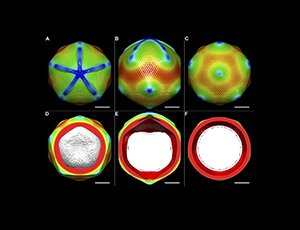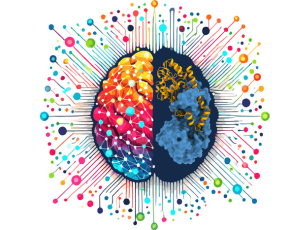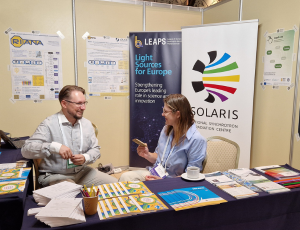 Web Content Display
Web Content Display
SOLARIS centre
 Web Content Display
Web Content Display
SOLARIS receives funds for the latest generation of electron cryomicroscopy

On the 25th of October, the Polish Ministry of Science and Higher Education handed over to SOLARIS the official decision to establish a National Cryo-EM Centre at a Polish partner facility, granting the requested financial support.
The successful application is the result of an agreement and cooperation between 17 leading scientific institutions in Poland in the area of structural biology. This very unique nation-wide consortium, led by Dr. Sebastian Glatt (the Malopolska Centre of Biotechnology, Jagiellonian University, Kraków) and Dr. hab. Marcin Nowotny (the International Institute of Molecular and Cell Biology, Warsaw), was not only key to bring this breakthrough research technique to Poland, but also exemplifies how scientists from around the country are able to work efficiently together for a greater common goal. This state-of-the-art microscope will allow its users to match the progress of other international research centres and will move Polish and international scientists into the first class of structural biology.
The advances made in cryo-EM have revolutionized the field of structural biology over the last decade. The increased recognition of this technology also culminated in the Nobel Prize in Chemistry being awarded to its creators in 2017. The development of this technique has opened up new research horizons, which has resulted in a long list of groundbreaking studies published in the most prestigious scientific journals. Foremost, the anticipated results are extremely relevant for a better understanding of the functioning of the human body, of the formation of human diseases and of processes like aging, and can also lead to the development of new effective therapies. Structural biology has already contributed to impressive progress in the treatment of various human diseases, including cancer, Alzheimer’s disease and obesity. Last but not least, the presence of a high-end cryo-electron microscope at SOLARIS means that Krakow will attract national and international structural biologists.
The funding of the project by the Polish ministry will be a part of the implementation of the tasks within the framework of CERIC-ERIC. The creation of the National Centre of Electron Cryomicroscopy at SOLARIS will expand the Central European Research Infrastructure Consortium CERIC-ERIC research offer by providing access to the Cryo-EM technique, which is among the most important methodologies in modern research.
![Obraz mimiwirusa stworzony dzięki mikroskopowi krio-elektronowemu. Fot. Xiao C, Kuznetsov YG, Sun S, Hafenstein SL, Kostyuchenko VA, et al. (2009) [CC BY 2.5]](/documents/1457771/139067175/kriomikroskop-ca%C5%82a-strona.jpg/ae4db0b2-fe1a-4a0b-9b55-96cef9c95be5?t=1541495350672)
The image of mimivirus made with the use of a cryo-electron microscope. Photo by Xiao C, Kuznetsov YG, Sun S, Hafenstein SL, Kostyuchenko VA, et al. (2009) [CC BY 2.5]



